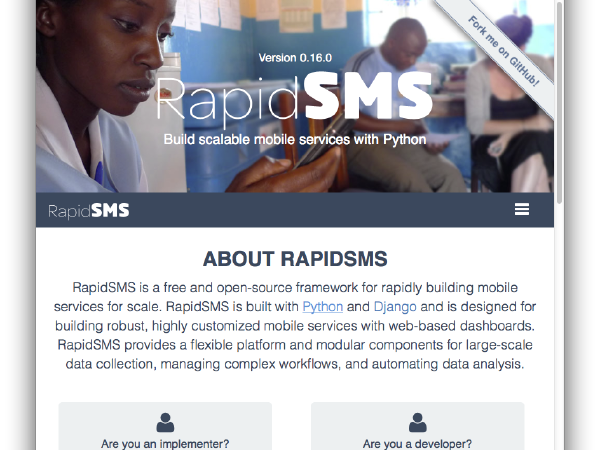Testing
2017

Ship It Day Q1 2017
Last Friday, Caktus set aside client projects for our regular quarterly ShipIt Day. From gerrymandered districts to RPython and meetup planning, the team started off 2017 with another great ShipIt.
2016

Better Testing With Less Code (PyCon 2016 Must-See Talk: 2/6)
Part two of six in our annual PyCon Must-See Series, a weekly highlight of talks our staff especially loved at PyCon. With so many fantastic talks, it’s hard to know where to start, so here’s our short list.

Writing Unit Tests for Django Migrations
Editor's note: This post was originally published in February 2016 and was updated in August 2017 to incorporate improvements suggested by our readers. It has also been tested for compatibility as of the Django 1.11 release.
2015

Testing Client-Side Applications with Django Post Mortem
I had the opportunity to give a webcast for O’Reilly Media during which I encountered a presenter’s nightmare: a broken demo. Worse than that it was a test failure in a presentation about testing. Is there any way to salvage such an epic failure?

Webinar: Testing Client-Side Applications with Django
Technical Director Mark Lavin will be hosting a free O’Reilly webinar today at 4PM EST or 1PM PT on Testing Client-Side Applications with Django. Mark says testing is one of the most popular question topics he receives. It’s also a topic near and dear to Caktus’ quality-loving heart. Mark’s last webinar garnered more than 500 viewers, so sign up quick!
2014

Tips for Upgrading Django
From time to time we inherit code bases running outdated versions of Django and part of our work is to get them running a stable and secure version. In the past year we've done upgrades from versions as old as 1.0 and we've learned a few lessons along the way.

Caktus Completes RapidSMS Community Coordinator Development for UNICEF
Colin Copeland, Managing Member at Caktus, has wrapped up work, supported by UNICEF, as the Community Coordinator for the open source RapidSMS project. RapidSMS is a text messaging application development library built on top of the Django web framework. It creates a SMS provider agnostic way of sending and receiving text messages. RapidSMS has been used widely in the mobile health field, in particular in areas where internet access cannot be taken for granted and cell phones are the best communication tool available. This has included projects initiated by UNICEF country offices in Ethiopia, Madagascar, Malawi, Rwanda, Uganda, Zambia, and Zimbabwe.
2013

Skipping Test DB Creation
We are always looking for ways to make our tests run faster. That means
writing tests which don't preform I/O (DB reads/writes, disk
reads/writes) when possible. Django has a collection of TestCase
subclasses
for different use cases. The common TestCase handles the fixture
loading and the creation the of TestClient. It uses the database
transactions to ensure that the database state is reset for every test.
That is it wraps each test in a transaction and rolls it back once the
test is over. Any transaction management inside the test becomes a
no-op. Since [TestCase]{.title-ref}[ overrides the transaction
facilities, if you need to test the transactional behavior of a piece of
code you can instead use
]{.title-ref}[TransactionTestCase]{.title-ref}[.
]{.title-ref}[TransactionTestCase]{.title-ref}` resets the database
after the test runs by truncating all tables which is much slower than
rolling back the transaction particularly if you have a large number of
tables.

Factory Boy as an Alternative to Django Testing Fixtures
When testing a Django application you often need to populate the test
database with some sample data. The standard Django TestCase has
support for fixture loading but there are a number of problems with
using fixtures:

MEDIA_ROOT and Django Tests
If you’ve ever written a test for a view or model with associated
uploaded files you might have noticed a small problem with those files
hanging around after the tests are complete. Since version 1.3, Django
won’t delete the files associated with your model instances when they
are deleted. Some work-arounds for this
issue
involve writing a custom delete for your model or using a post_delete
signal handler. But even with those in place the files would not be
deleted during tests because the model instances are not explicitly
deleted at the end of the test case. Instead, Django simply rolls back
the transaction and the delete method is never called nor are the
signals fired. This can be quite an annoyance when running the tests
repeatedly and watching your MEDIA_ROOT (or worse your S3 bucket) fill
up with garbage data. More than annoyance, this introduces something you
always want to avoid in unittests: global state.